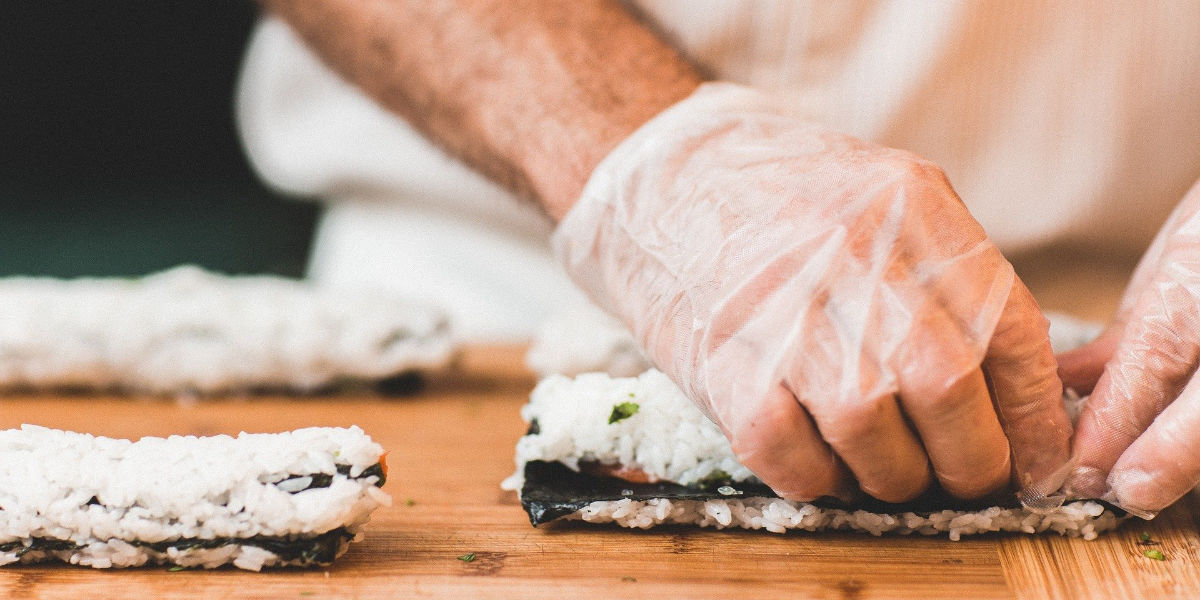Common Food Pests and the Dangers for Restaurants and Retailers
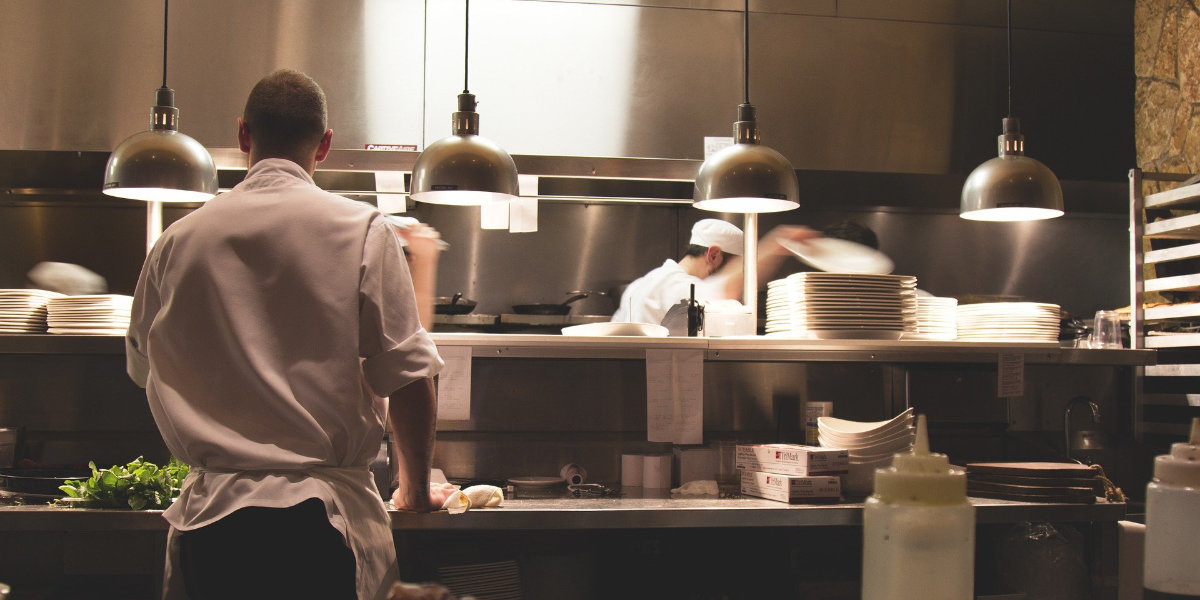
Food pests can cause your customers to become ill and your reputation to be tarnished, resulting in significant setbacks for your business. This is why it’s important for all businesses, no matter how big or small they are, to maintain sanitation standards to prevent pest damages. In this article, we’ve put together a guide to the most common pest issues facing food retailers and restaurants, so you can save your produce and your business before it’s too late.
Why are pests a food safety hazard?
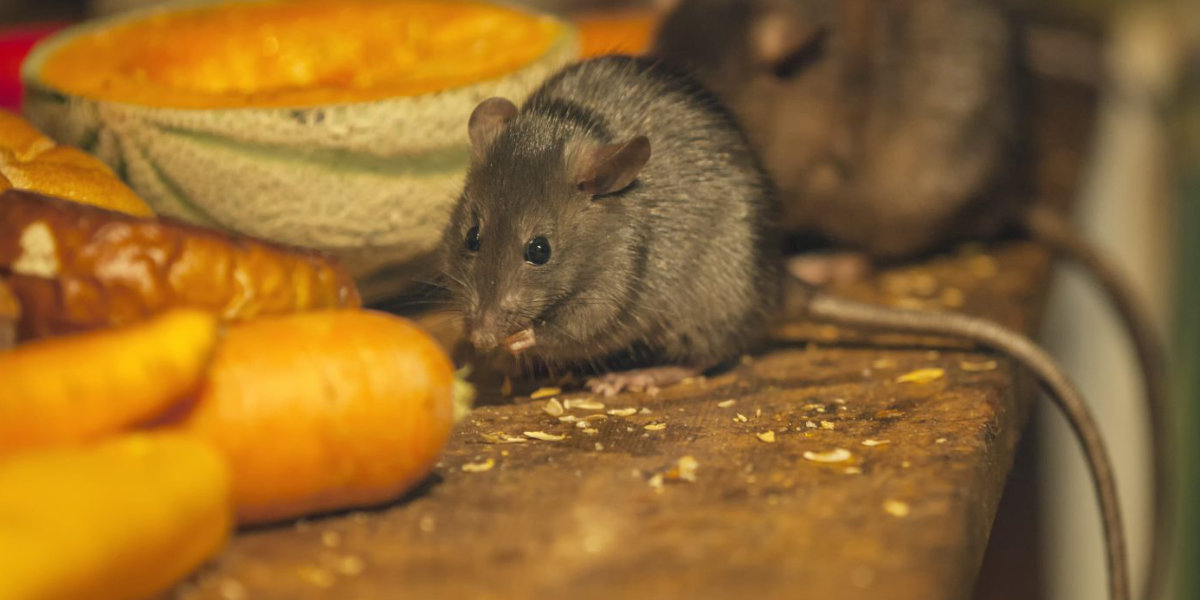
When pests get access to food stores, it is easy to understand how they can quickly cause huge problems for businesses in the food retail and catering industries. They can burrow into food packaging and contaminate it, rendering the contents inedible and causing setbacks for your business. Pests can spread diseases through their fur, feet, droppings, urine and saliva, as well as harmful bacteria like salmonella and E.coli if they are carrying it. This can inevitably cause illness and food poisoning in those who consume affected food. When faced with a pest infestation, the health of your customers and employees is at risk, as well as your reputation.
The four main food pests
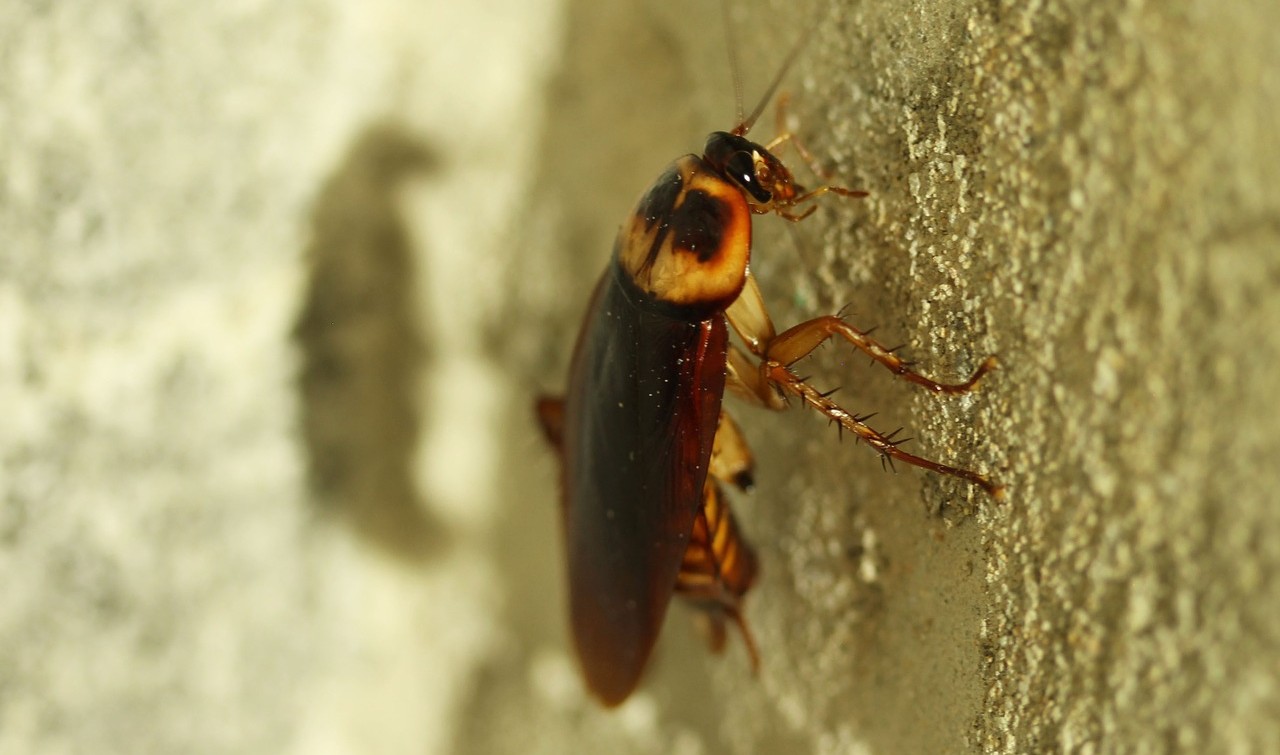
There are a whole host of common pests that can find their way into your business premises, lured in by the promise of being fed. These can be categorised into four main food pests: rats, mice, birds and insects. Such pests may include birds like pigeons, sparrows and starlings, or insects like ants, cockroaches, flies and mites – each of which cause damage in their own way.
Pests like to be anywhere food is readily available (stored or fresh – they’re not fussy) and places where they can find shelter (in and under your stock), making supermarkets and restaurants the perfect habitat.
How pests contaminate food
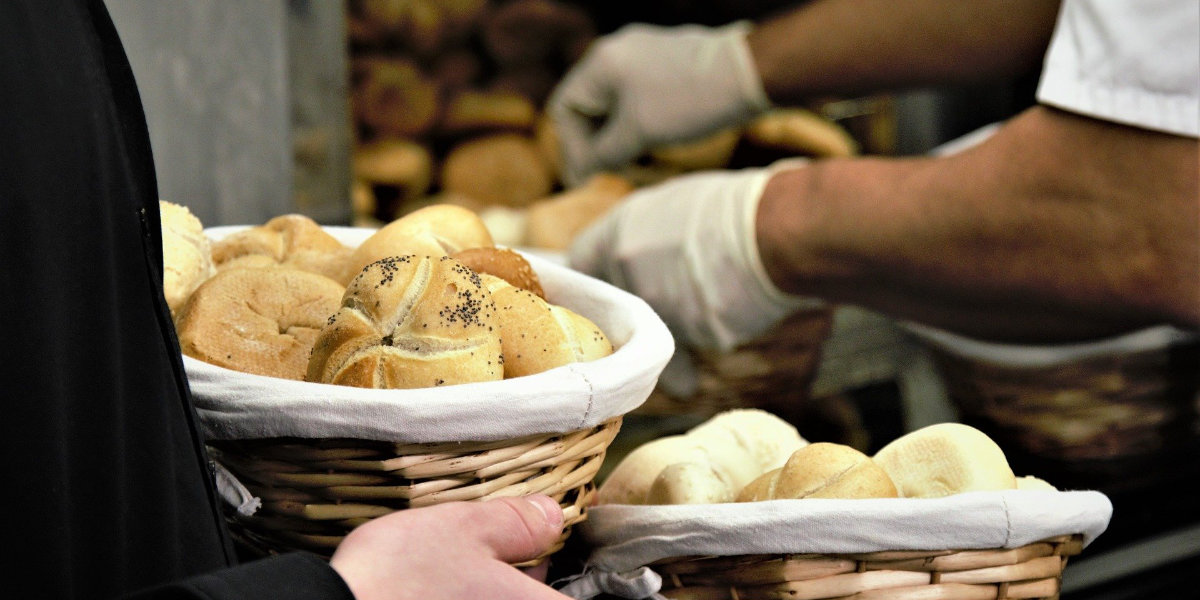
Stored-product insects such as mites, moths, beetles, weevils and so on are known for making their way into stored produce. These insects can create holes so small that we’re unable to see them, and although they are small in size they are able to contaminate large quantities of stored produce. This can lead to infected food which can negatively impact your consumers’ health. Signs of their existence include webbing around food spillages, beams and window sills. Contact your pest control professional to remove these insects and fumigate your property.
Ants are in fact more of an annoyance than they are an issue with food safety. They have the ability to infest food areas, cupboards, shelves and make their way into packaging which can ruin your stock. They can nest in cracks within bricks in the walls of a building, under sheets of paper and so on. This makes them difficult to get rid of, but a professional pest controller will find the source of the problem and use substances stronger than everyday insecticides to provide long-term success.
Cockroaches aren’t picky when it comes to food and they generally appear during the night which can be tricky for businesses to spot. They could be spreading diseases without anyone knowing. However, there are signs such as droppings, skin casts and egg cases that you should stay vigilant for when making regular inspections of equipment, incoming goods, storage, displays and the building itself. You should also manage waste appropriately and keep drains clean. If you do happen to find a large infestation, it’s always important to have it tended to by a professional so that chemical-free methods can be used to ensure safety within a food environment.
Flies will feast on available fresh foods and breed in the heat. Although they have a short life, they can multiply quickly and this can result in swarms of flies outside and inside your building. Whether it’s food or retail, flies linger around bins and drains so ensure that they’re clean at all times. You might want to do some thorough weeding too as they also eat plants. Flies contaminate everything they touch which is why it’s important to control them and remove them as soon as possible, to avoid any health hazards.
Rats and mice can cause more than just health hazards, they can make their way into the building’s fixtures and damage the inside of the building, posing a threat to all. They are happy to feast on all things edible and reside within anything. Signs of rodents can include droppings, squeaks, gnawing sounds or tracks of oily fur.
The best course of action for a rodent problem in a kitchen area
DIY pest control is strongly discouraged, but there are processes you should have in place as a business to prevent rodent problems:
- Building maintenance such as tightly sealing windows and doors, caulking door and window cracks, and not leaving doors or windows open
- Regularly checking areas such as storage areas, between walls, attics, and crawl spaces – rodents can easily hide and go unnoticed
Rodents can spread diseases quickly and the issues they present in a food environment are much more serious and complex than they would be in the home. It’s vital that you notify a pest controller such as Pest Defence as soon as possible when you notice any signs of a rodent, as it is essential to have the necessary skills and experience of a professional.
Restaurant pest control
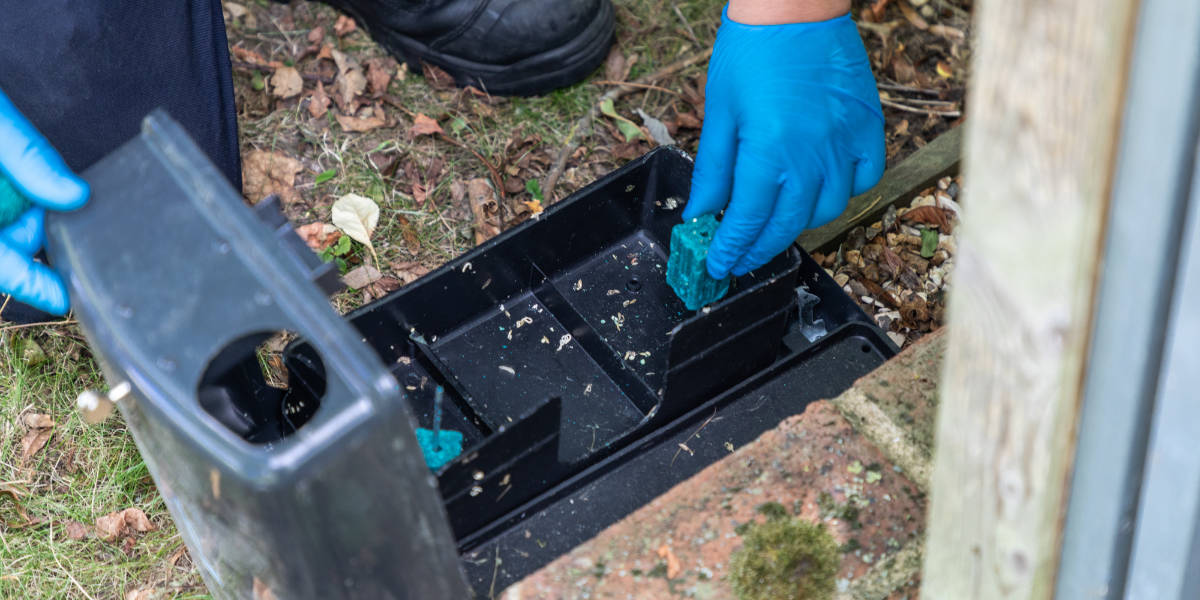
For restaurant and food retail businesses, pest control legal requirements can be confusing. The general consensus is that the responsibility lies with the businesses to ensure that their premises’ layout, design, construction and size is conducive to effective hygiene practices.
Businesses must put in place adequate procedures for pest control, and the onus is on the proprietor to make sure this happens. Commercially available products should be used only by professionals, however. A contract with a pest control company is recommended, as baits and poisons can contaminate food, so leave it to the experts.
Food safety FAQs
Which pests are a risk to food safety?
Any food pest is a risk to food safety. Whether they are carrying diseases or not, it’s unhygienic for pests to come into contact with food or preparation areas, putting your customers’ health at risk.
Which pests carry salmonella?
Flies and cockroaches can carry salmonella, a harmful bacteria that leads to food poisoning and can cause you to become seriously ill.
What evidence would you find from an infestation of flies?
If you are dealing with a fly infestation, you can usually use the place they are found as a guide to where their breeding site is – for example, if lots of flies are being noticed in the basement, they could be living in the drains.
The type of fly can also determine what is attracting them. House flies are attracted to decaying substances such as faeces and rotting food, whereas fruit flies like sugary substances overripe fruit, spilt fizzy drinks, and alcohol.
What conditions do food pests need to survive?
Most pests like warmer temperatures, and habitats where water is available. But the main thing they look for, of course, is food!
Pest Defence is a top-rated pest control company that can provide a solution to all of your pest problems. Our qualified, experienced team carry out their work efficiently with care and consideration, not to mention excellent customer service. Based in Essex, we serve the surrounding areas of Colchester, Brentwood, Chelmsford and beyond – get in touch today to see how we can help you.



